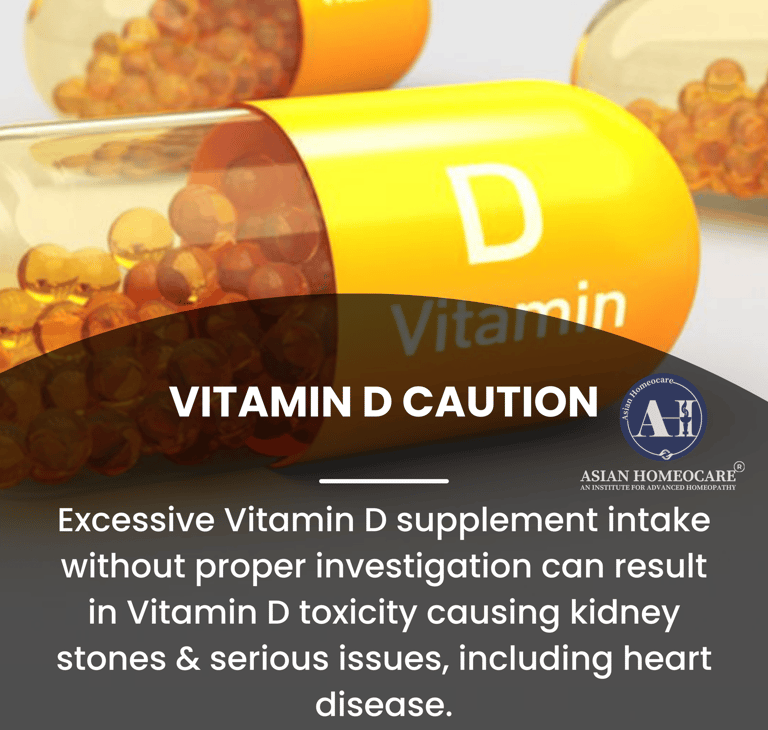Sunshine on Your Health: Understanding Vitamin D Deficiency
Feeling low on sunshine? ☀️ Unravel the mystery of Vitamin D deficiency! Learn symptoms, solutions & food sources (veg & non-veg) to boost your body's natural defenses. ️ Read our informative blog & shine brighter! ✨
NUTRITIONS
Dr. C S Hiremath, Dr. M V S S Rama Krishna
2/9/20243 min read

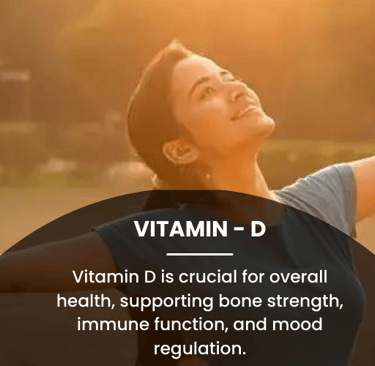
Vitamin D, often called the "sunshine vitamin," plays a vital role in maintaining strong bones, a healthy immune system, and overall well-being. But surprisingly, many people worldwide suffer from vitamin D deficiency. This informative blog post aims to equip you with the knowledge to recognize and address this common issue, focusing on evidence-based methods and avoiding unfounded claims.
What is Vitamin D?
Think of vitamin D as the maestro directing your body's health. As a fat-soluble "vitamin" (though technically not one, as our bodies can produce it with sunlight), it's indispensable. Vitamin D is unique, acting more like a hormone than a vitamin.
We can get it from two main sources:
Sunshine: Our skin produces vitamin D when exposed to UVB rays.
Diet: Some foods naturally contain vitamin D, and many are fortified with it.
Vitamin D comes in two main forms:
Vitamin D2 (ergocalciferol): This type is sourced from plants, such as mushrooms and fortified foods.
Vitamin D3 (cholecalciferol): Our skin produces this version when exposed to sunlight, and it's also found in animal sources like fatty fish and egg yolks.
Who is at risk?
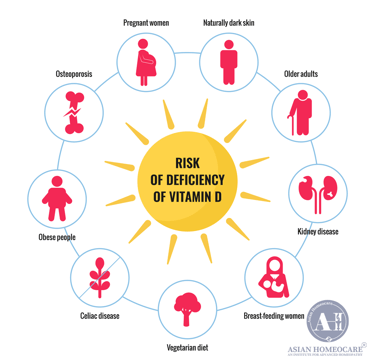

Anyone can be deficient, but certain groups are particularly vulnerable:
People with limited sun exposure.
Individuals with darker skin tones need more sun exposure to produce vitamin D.
Those with certain medical conditions or taking medications that affect vitamin D absorption.
People who follow restrictive diets lack vitamin D sources.
What are some early warning signs that could indicate a vitamin D deficiency?
🕵️♂️ Feeling constantly tired or fatigued: Vitamin D deficiency might be the culprit. This essential nutrient plays a crucial role in energy levels, so low levels can leave you feeling drained.
😷 Weak immune system: Vitamin D helps support your body's defense against illnesses and infections. If you find yourself getting sick often, it might be a sign of deficiency.
💪 Muscle and bone pain: Vitamin D is vital for maintaining strong bones and muscles. Deficiency can lead to aches, pains, and even osteoporosis in the long run.
😔 Mood swings or feeling down: Vitamin D is linked to mood regulation, so low levels may contribute to feelings of sadness or depression.
👩🦲 Experiencing hair fall: Vitamin D deficiency can disrupt the hair growth cycle, leading to increased shedding and thinning of hair.
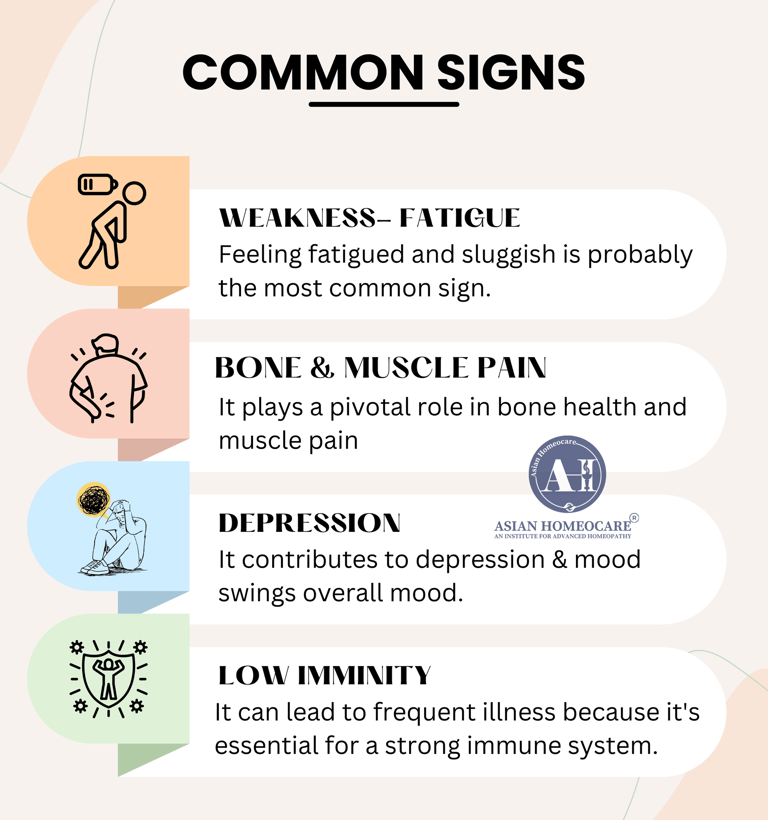

Sun Exposure:
Enjoying moderate, unprotected sun exposure on arms, legs, or back for 10-15 minutes (depending on skin type and location) 2-3 times a week can boost vitamin D levels. Remember sun safety
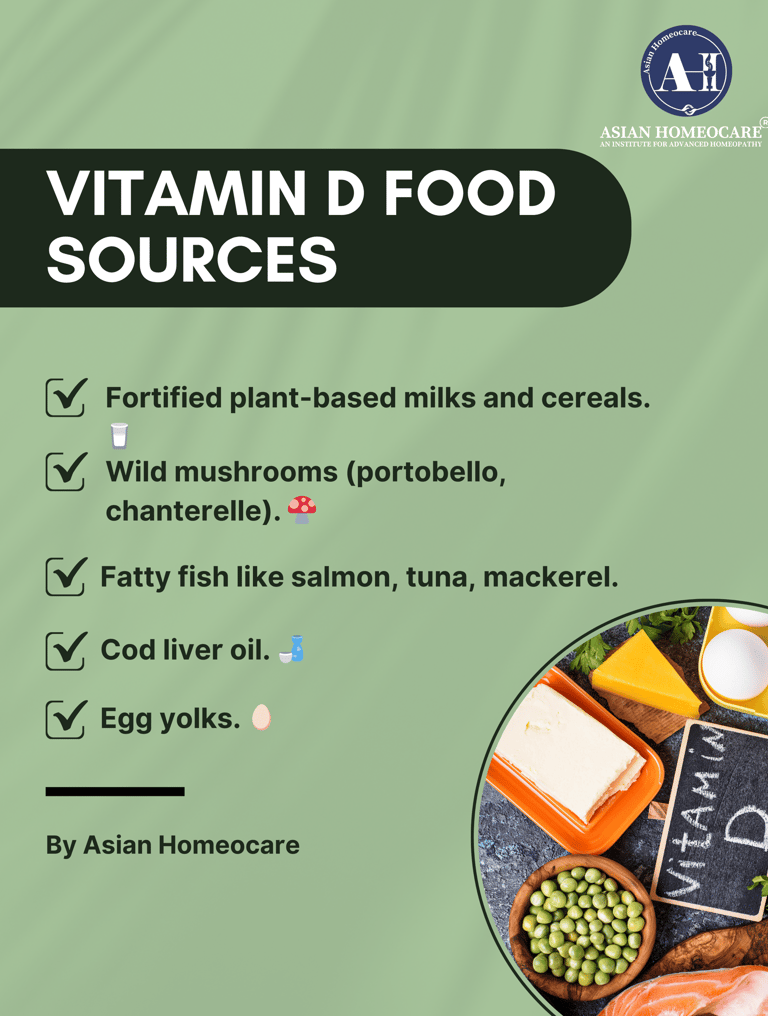

Fuel Your Body with D-Licious Foods:
While limited, vegetarian and non-vegetarian sources can contribute to your vitamin D intake. Explore these options:
🌱 Vegetarians:
Fortified plant-based milks and cereals. 🥛
Wild mushrooms (portobello, chanterelle). 🍄
🐟 Non-Vegetarians:
Fatty fish like salmon, tuna, mackerel. 🐟
Cod liver oil. 🍶
Egg yolks. 🥚
Fortified dairy products. 🧀
Remember:
Stay mindful of Vitamin D intake to avoid potential toxicity. Excessive consumption without medical oversight can lead to adverse effects on your health. While Vitamin D is essential, moderation is key. Remember, always consult with a healthcare professional for personalized guidance on supplementation. Your well-being matters most.
Request a Call Back
